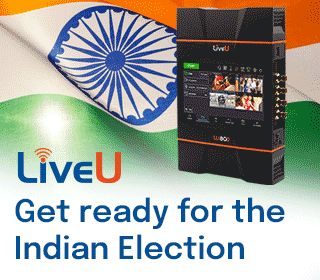Headlines Of The Day
OTT players fear representation void in self-regulatory panel, govt says industry will choose
Video streaming platforms are worried the new rules for over-the-top (OTT) and digital media players do not explicitly earmark their representation in self-regulatory bodies, which will form the middle rung of a three-tier grievance redressal structure.
According to the Narendra Modi government’s Information Technology (Intermediary Guidelines and Digital Media Ethics Code) Rules, 2021 notified this week, self-regulatory bodies — for OTT and digital players — will be headed by a retired Supreme Court or high court judge, or an eminent person from the field of media, broadcasting, entertainment, child rights, human rights or relevant fields.
The panel will have a maximum of six other members, who would also be from the same sectors.
Under the rules, once a complaint is taken to the third tier — which would be the government oversight — an inter-ministerial committee (IMC) could be formed to look into it and suggest action that could range from warning to blocking of specific content found violative of rules.
Speaking to ThePrint, industry sources from streaming platforms said the rules do not explicitly call for the platforms’ representation in the self-regulatory body — which will take a call on the content streamed by them — unlike the self-regulatory structure for the television broadcast industry.
This leaves a void, they said.
Sources in the government, however, said it will be the platforms that will choose eminent members to form the panel, which could include filmmakers and media personalities who could take an informed and impartial decision.
According to the rules, the self-regulatory body, which will be constituted by the platforms or their associations, will also have to register itself with the Ministry of Information and Broadcasting (I&B) within 30 days after its constitution.
But the ministry will decide on allowing the registration based on whether the laid down criteria on composition and functions are met.
The Print reached the I&B ministry for a comment on the lack of provision for the platforms’ representation in the self-regulatory body, and the registration. However, there was no response until the time of publishing of this report.
What is the structure of self-regulatory bodies for broadcasters?
The existing self-regulatory bodies for the television industry, which forms the basis of the new rules, have a fixed representation of broadcasters.
Under the industry body Indian Broadcasting Foundation, which comprises major broadcasters, the Broadcasting Content Complaints Council (BCCC) considers and adjudicates complaints for general entertainment channels.
The News Broadcasting Standards Authority (NBSA), under the News Broadcasters Association, does the same for news channels.
The BCCC composition also includes four non-broadcast members, four members from any national level statutory commissions, and four broadcaster members. It is headed by a retired Supreme Court or a high court judge.
The composition of NBSA includes an eminent jurist as the chairperson, four eminent persons having special knowledge and/or practical experience in the field of law, education, medicine, science, literature, public administration, consumer affairs, environment, human psychology and/or culture, and four eminent editors employed with broadcasters.
No representation, so how is it self-regulatory?
Speaking to ThePrint, a senior executive with a leading OTT player said the platforms should have a fixed representation in the self-regulatory body, like NBSA or BCCC.
“If we do not have any representation in the self regulatory body, how can it be called self regulatory?” said a senior executive asked.
The industry body Internet and Mobile Association of India (IAMAI) will deliberate and discuss the rules and the way forward, in terms of aligning the work it has done in this sphere with the new rules, said industry sources.
However, the immediate measure would be to see to it that there is some representation of the platforms in the self-regulatory body, in consultation with the government.
A universal self-regulatory code brought by the IAMAI earlier had called for the appellate tier to be composed of an equal number of company representatives and independent members, with an independent member heading the panel with veto powers.
A second OTT executive from another platform said the provision of registering this self-regulatory body with the ministry also raises questions. “We have to wait and see how this pans out, especially if the ministry is not happy with it,” the source said.
Another senior executive had earlier told ThePrint that there are fears that if a self-regulatory body is not set up immediately, the IMC may fill the void. “Hence, it is necessary that the industry comes together to set up this body immediately,” the executive had said.
‘Industry will select the body, nothing to fear’
Sources in the government said the rules mandate the industry to choose the members of the self-regulatory body and not the government, and so they have nothing to fear.
“The members would be from the same fields and not a radically different sector… that too will be chosen by the industry,” a source in the government said.
“So, if a complaint regarding an OTT film or content is being heard, an eminent filmmaker or a media personality can take an informed and unbiased view of the complaint being from the same industry,” the source said.
As far as the registration is concerned, the government will only check if the panel meets the norms laid down in the rules before registering it, said sources, adding that it is now necessary for the industry to set up this second tier to avoid the IMC taking its place.
The new rules mandate OTT platforms not to stream content, which is against the sovereignty and integrity of the country, endangers security of state, which is detrimental to India’s friendly relations with foreign countries, and content, which is likely to incite violence or disturb public order. Theprint









You must be logged in to post a comment Login